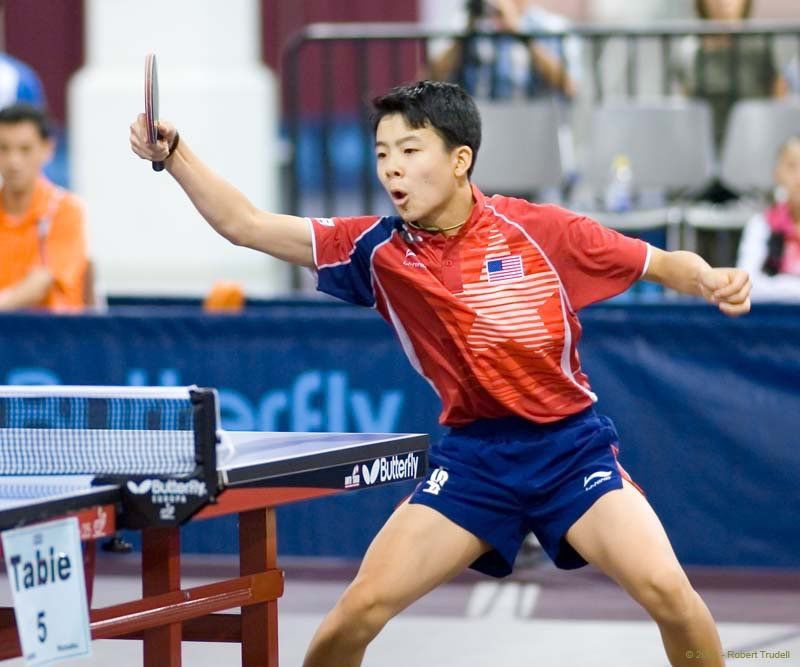Anyone who grew up with sisters and/or brothers in the same household knows that sibling rivalry is serious business. What begins as a primal scream-off for the attention of beleaguered parents can turn into a lifetime of competition, one-upmanship and petty bickering. While this nastiness can drive some into seclusion, therapy or the witness relocation program, sibling rivalry can also be a great motivating force. The competition between Venus and Serena Williams in tennis has translated into Olympic gold for the United States. From the Mannings in football to the Gasols in basketball, siblings often push each other to excel. In the case of the Yao brothers of St. Louis, these forces could have helped elevate American table tennis in the global arena. More than a simple case of what could have been, their story casts the deeper problems of our sport's domestic infrastructure into stark relief. At a glance, it does not appear all that bad. The US women's team is ranked ninth in the world. Reigning national champion Lily Zhang finished fourth in the 2019 ITTF Women's World Cup, the best ever finish for an American woman. The US men's team, however, is ranked 27th in the world, the same as captain Kanak Jha's individual world ranking. While Jha routinely racks up international medals, his teammates have yet to join him among the world's top players. His teammates for the 2020 Tokyo Olympics are Nikhil Kumar, world #177, and Zhou Xin, #997. In an alternate timeline, Jha would be backed up by the Brothers Yao. Justen Yao (pictured), 27, and his brother Alex, 24, were once the top junior table tennis players in America. Now they are among the top accountants at KPMG in St. Louis. Their mother, Sheri Xu, was a professional table tennis player in China. She taught her boys well, and they had every chance to excel. After years of training, however, they began to wonder if it was all worth it. "It was my junior year in high school,” recalls Justen. "Around that time, I was signed by a team in Germany and used to travel once or twice a month to play in the league there. I had to make a decision whether I wanted to continue training or go to college. That was the pivotal time, whether I would try and make the Olympic team for London or go to college and continue my career outside. It was a hard decision, but I didn’t see myself medaling... I may have been able to win a few rounds, but I wasn’t not going to be able to win it. I was pretty realistic when it came to that." Alex crunched the numbers and reached the same conclusion as Justen. "I was 14 and at the world championships in Japan, and being heavily recruited by Europeans," said the scrappy younger brother. "The U.S. had a development program to send me to the Olympics that would basically be my life for 10 years. I spoke to my parents and it just wasn’t feasible. "I would have had a high school diploma and been done at 24. If you go straight to college, that’s four or five years, you’re 28 or 29, that’s late to find a job. I’m extremely happy to have had the experiences I’ve had. At the end of the day, getting my education and planning for my future was more important." The Yao brothers got accounting degrees at the University of Missouri, trading in their paddles for green CPA visors. Even though neither plays much anymore, the sibling rivalry remains. "He’s always been older than me, so he’s always a step ahead of me," said Alex. "Right now, I think I’m still better." Both have achieved stable, successful careers, which cannot be regarded as anything but a success story. Still, one wonders what else might have been. As it stood, being the best in St. Louis meant plateauing. Reaching the top requires extensive travel to Europe and/or Asia, making the timely completion of a rigorous STEM degree like accounting all but impossible. (Granted, Sathiyan Gnanasekaran of India did complete his engineering degree while rising to world #24, but he is the exception that proves the rule.) Now, all promising young table tennis players in the United States must face the same dilemma as the Yao brothers. With all too few professional American table tennis players to emulate, most take the safe route and focus on school. If the United States had a more robust table tennis training infrastructure, it would be easier for talented American juniors to balance academics with professional table tennis training. Motivation to excel in both arenas will be a readily renewable resource if they happen to go to school with a sibling. Especially one who also packs a paddle in a padded case.
More at St. Louis Post-Dispatch
